The Final Stand - Part 3
Saying Goodbye
This is Part 3 in my series The Final Stand. Part 1 shares the background and our High Court experience. Part 2, Life in Limbo, traces the slow unravelling that followed. The links are below if you wish to read in order.
I have a confession to make. I am no longer farming.
I cannot tell you how many times I have written and rewritten this, not only on paper but also in my head. This was meant to be Part 2 of The Final Stand, and yet there is simply too much to tell in a single post. That is why I am turning this into a series, with The Final Stand and Life in Limbo as the first two pieces, and this one as Part 3.
I published Part 1 in December, and I am proud of it because it gives the background to our battle and an account of what happened in the High Court.
For two gruelling years we fought to save our farm and our home, and in that fight I saw how the system pushes small farmers to the brink.
Part 2, which is Life in Limbo, begins to paint how hard things became for us as farmers. When I look back, I can see it was the slow beginning of the end, even though we did not know it then.
Every day feels like a tightrope between caring for our animals and raising our boys, and the relentless storm of legal battles and makeshift living.
In late December, Matt and I made the decision to begin reducing our herd. A suspended sentence hung over us, and our neighbours and the local planning authority kept us under constant scrutiny. We could not be at the farm as often as our standards required, and that simple fact went against everything we believed about good animal husbandry.
Sending so many of our herd to Frome market broke my heart. It is still a day I hate to think about and still brings me to tears. Yet there was one small light in that darkness, when the new owners of our sows found us on social media and shared gentle updates. One of our girls settled into a quiet home in Hampshire and had two more litters before she retired to graze out her days. Another sow went to Jamie’s Farm, a place where children and young people learn about regenerative farming and where food really comes from. She even met the Queen Consort.
As much as my story is about pigs, this piece is not only about pigs. We kept a few animals on the land - a couple of breeding sows, some fatteners and weaners, and the Highland cattle. We had not given up on farming, but everything was changing around us and inside us. We searched for other work and somewhere to live that would accept two farmers with no savings and heavy debts. When our small caravan had to move to a pub car park, after an unauthorised visit from the local planning authority during the high court proceedings strained our relationship with the landlord, we tried to make that cold and damp space work for a family. Matt fought chest infections. Our boys grew and needed the stability and space that every child deserves.
The weight of it all was unbearable. The suspended sentence sat above us like a threat we could not ignore. We were desperate for planning permission so we could protect the farm and give our children a home. But making a living from farming was becoming harder with each month that passed. Legal bills mounted. Our savings disappeared.
In early January, we learned that our local abattoir would close. We had already struggled with its decline and the butchery had become sloppy, and the small-scale calmness that mattered so much for the animals had disappeared. The alternative was more than an hour away. That was never going to be kind on the pigs. The closure became one more reason to slow the farm, even as it hurt to admit it.
By then, my anxiety and depression were at their highest point. I did not want to give up, but I think I already knew what was coming. We were told that a decision from the Planning Inspectorate would arrive six to eight weeks after the hearing, and that it could come any day. It did not arrive until July of 2025.
I went to the Oxford Real Farming Conference with that weight pressing on my chest. I kept asking myself what we would do, how we could afford to live in the UK, whether it was even worth going. I almost stayed away. I am glad I went. The energy and kindness of the regenerative community lifted me. I left with a small spark in my heart that even if we had to stop for now, it would not be forever. In the meantime, I could still stand up for farming and for food security.
Soon after the conference, we took a short family break to The Gambia. I hoped it might bring us closer and ease the strain. It did while we were there. But when we came home, the uncertainty in the UK felt like a wall I could not climb. I broke down. I separated from Matt, because the reality of selling the last of our pigs and stepping into a new life was more than I could carry in that moment. It was one of the hardest times we have lived through as a family.
We did find our way back to each other, although the waiting continued. I moved into my mother’s spare room with the children. Matt stayed in the caravan. We were apart, still waiting for a decision, and all we wanted was an end to a chapter that would not close.
In the end, we chose a path that gave us room to breathe. We sold the last few pigs. We told the owner of the Highland cattle they would need new grazing. We took a break from the UK. I am very fortunate that Farms Not Factories is remote work, and that my employer supports me working from wherever I am. We packed up as a family and went abroad to heal.
It was the right choice. We rebuilt a little, Matt and I got married and we made a modest home for our family. Then the decision finally came, and we lost. It had taken eight months for the Planning Inspectorate to write the decision, after almost two years to reach the hearing. We had spent all our savings trying to save the farm. The farm did not fail as a business, it was the pressure of enforcement and consultants and legal fees and solicitors. The rest of the damage came from the toll on our mental health.
I know some of you may feel disheartened when I still share farming content. If you choose to leave, I understand. But not farming today does not make me any less of a farmer at heart. If writing about what we lived and what we learned helps even one small farmer, then it matters. Farming needs more than farmers alone. It needs advocates and writers and speakers and activists. It needs consumers who will stand with small farms when it counts.
For the wider picture, I want to say that my story should be taken as a warning to anyone who believes small farms are not under pressure. Since our case, I have heard from farmers who are battling planning enforcement, being forced out of tenancies, and even being arrested for crimes they did not commit. That may sound unbelievable, and it is happening all the same. Only this month I was sent a link about a couple in Devon who were arrested and removed from their home for robbery, when what they were facing was in truth a planning dispute.
Farming in the UK is under pressure from many directions. Inheritance tax changes. Planning and enforcement battles. The loss of subsidies. Large solar projects. Compulsory purchase. Dairy corporatations that fail to collect milk. Food inflation that does not translate into fair prices for farmers. And when enough farms go, the countryside changes. Land does not lie empty. Some of it is absorbed into factory farming that produces cheap meat with abusive welfare and harmful environmental practices. Some becomes solar installations that blanket fields and alter landscapes and damage soils. Some becomes housing estates built quickly to meet targets, with costs paid elsewhere. Every one of these outcomes touches public health and nature and wildlife and the climate and the communities that make rural life worth living.
If we lose more farms, then who grows the food? When we already produce less than sixty percent of what we eat, we cannot afford to lose more agricultural land. Current land use plans even signal a reduction in farmland. When we do not produce food here, we import more. The standards in the UK are not always matched by international partners. Hormone-fed beef, chlorine-washed chicken, the routine use of antibiotics and heavy chemical inputs these do not only threaten health and ecosystems, they also erode the landscapes that hold our memories.
I am not farming today, yet I am seeking work that keeps me inside UK farming. I will keep writing and advocating for farmers and for food security. I will keep going because the UK is my home, and because I believe we are at a turning point. If we continue on this path, we risk losing the countryside altogether. Farmers need you now.
I wish I had told my story sooner. Perhaps the community would have rallied. Perhaps we could have saved the farm. What I ask now is that you buy local where you can. Buy directly from farms. The odds are stacked against small producers, and they deserve fair pay especially those who are restoring nature and biodiversity.
Thousands of Countryside Stewardship agreements are due to expire in December, and no clear replacement is yet in place. We should remember that these schemes help farmers maintain the landscapes we all love, while producing nutritious food.
Buy local. Eat seasonal. Keep value in farmers’ hands. Build community around real food. Many small moves can add up to real change.
If this work speaks to you, please consider subscribing to my publication. Free subscriptions help this story reach more people and help me keep writing. If you are able to upgrade, a paid subscription makes a real difference to my family and to this work. You help cover the costs we have already faced, and support ongoing reporting, advocacy, and practical guides for small farms. Every paid subscription is a small but meaningful vote for better food and farming.
Help me keep telling the truth about farming and help shape a better system for food and for the countryside we share.
Thank you for reading, for sharing, and for standing with small farms.
H x
If just 5% of my readers tipped £1/$1 this essay would pay for itself in terms of time spent working on it.



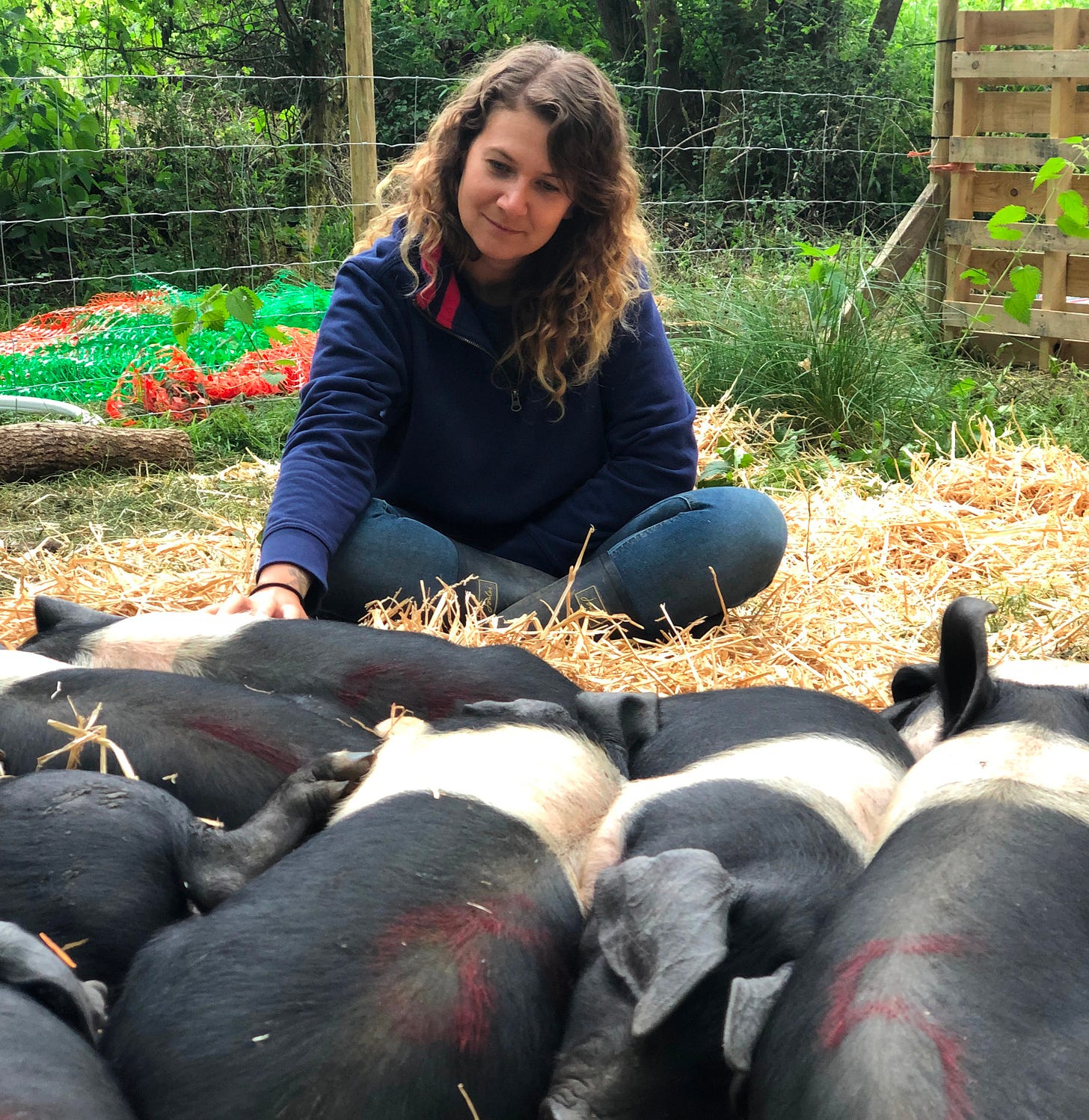
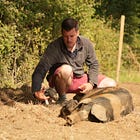

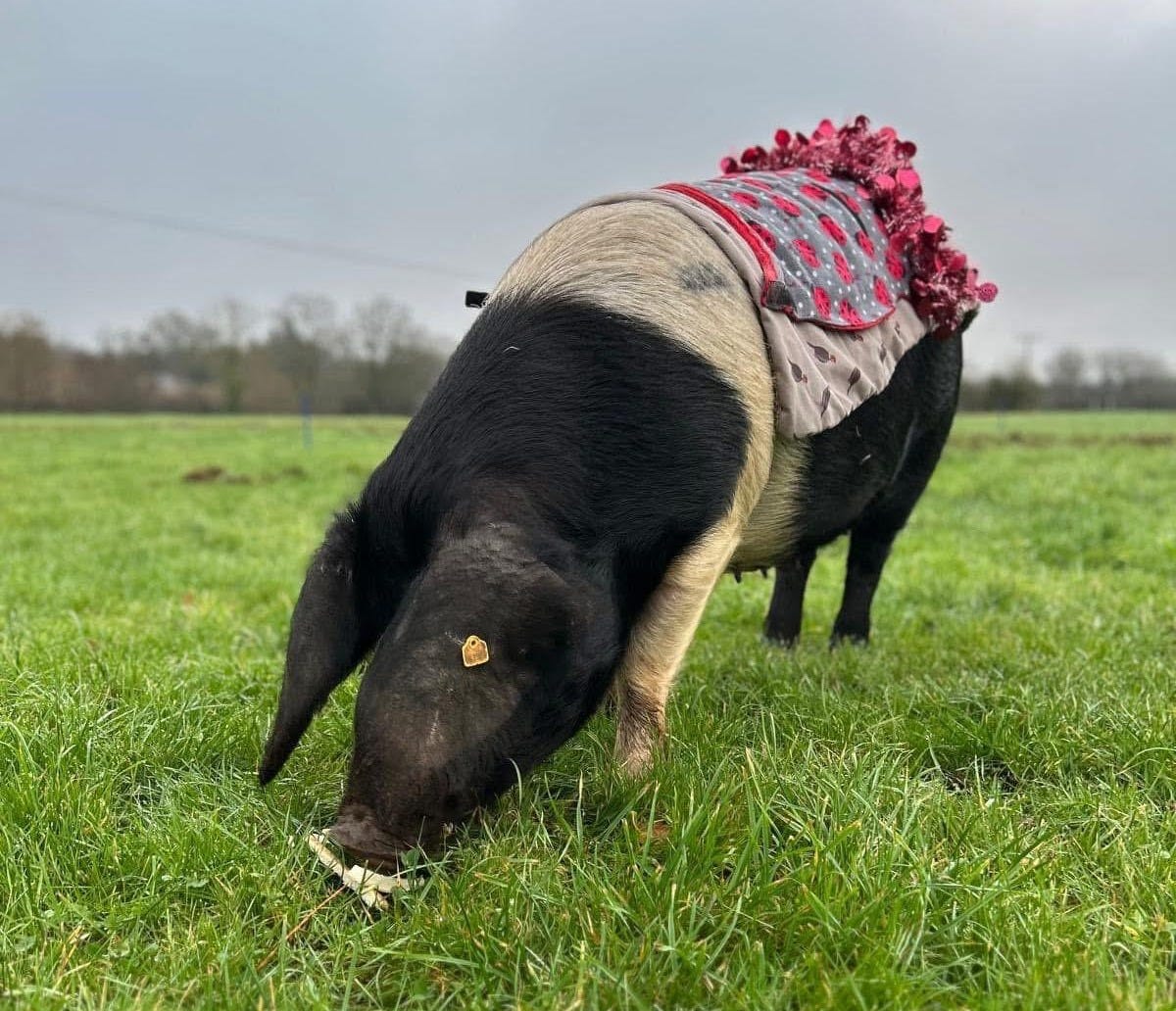
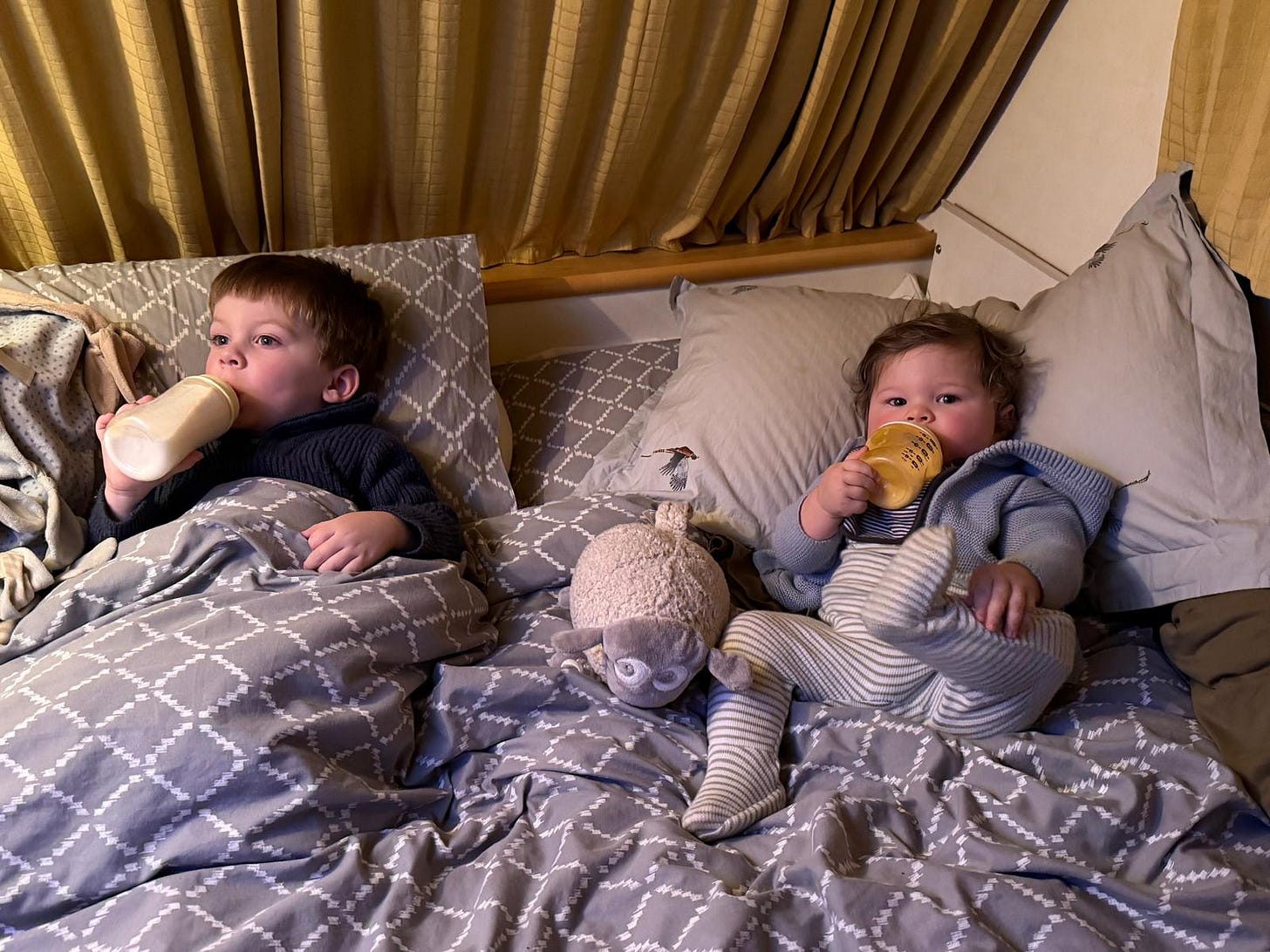
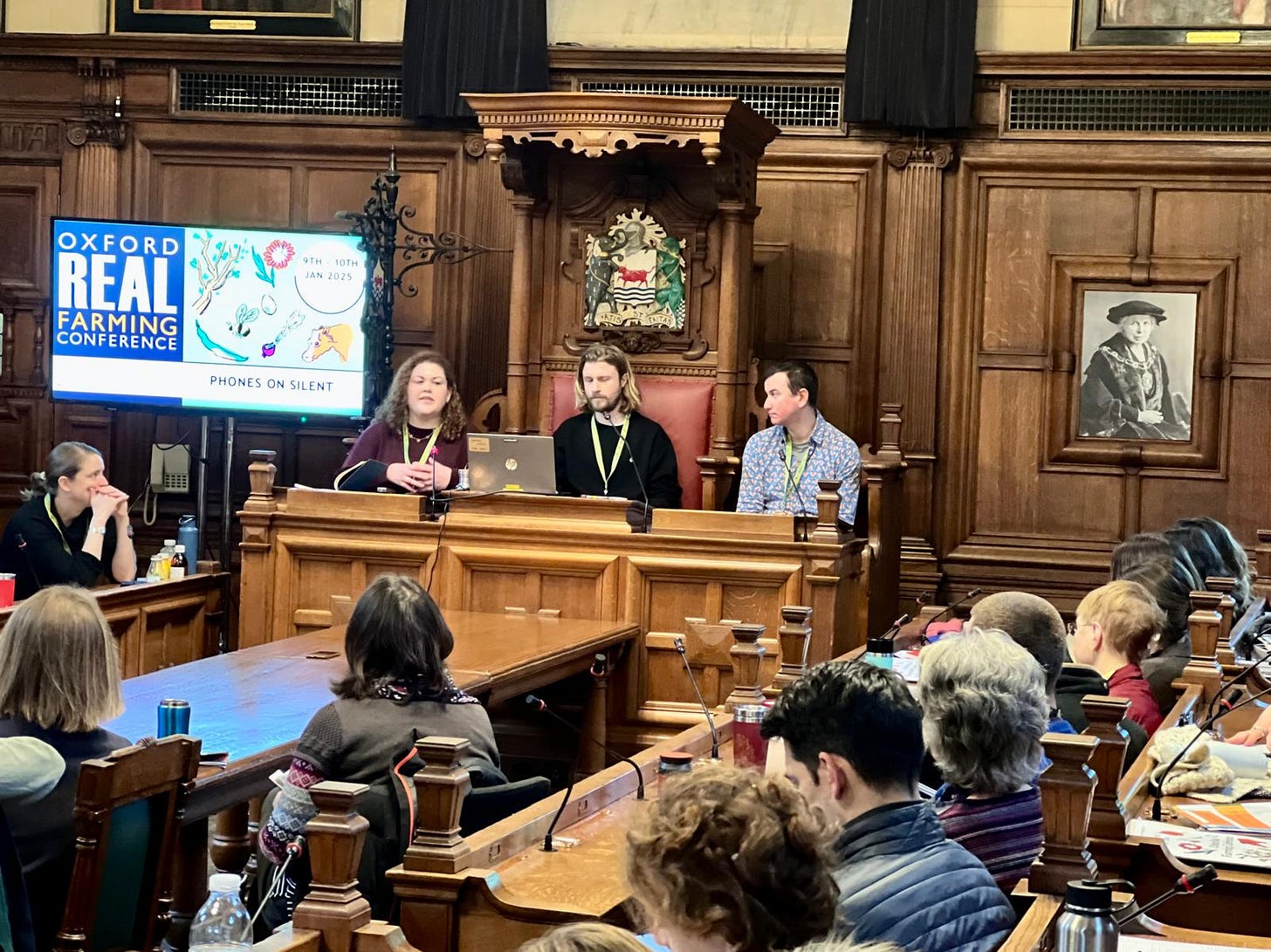


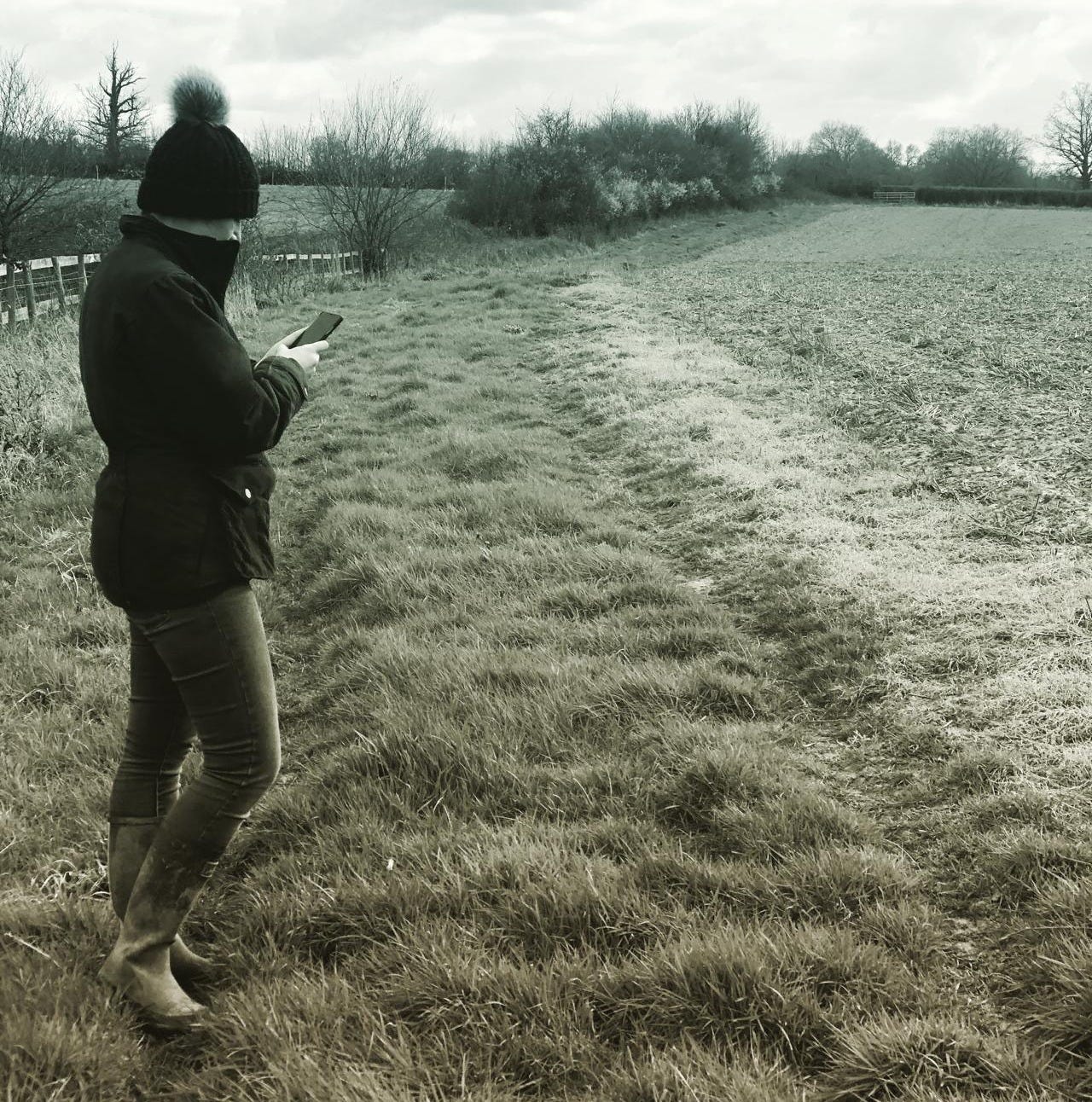
I’m so sad reading this. I truly believe that small farms and regenerative practice is the way to go but there is so much wrong with the system. Hope you find a way forward to return to what you so obviously love.
Helen, you are forever a farmer, even if you no longer farm. Once a farmer always a farmer. Good luck and very well done, you should be proud of yourself.